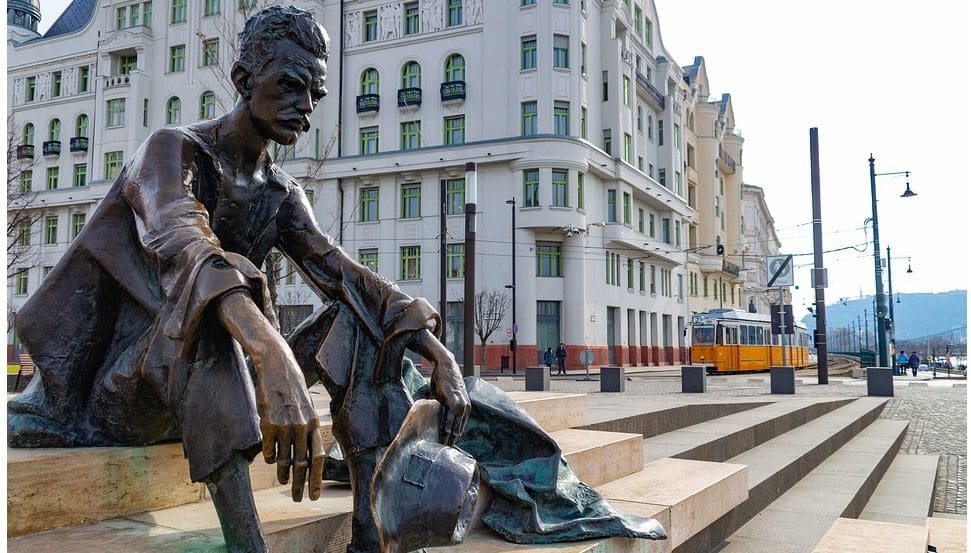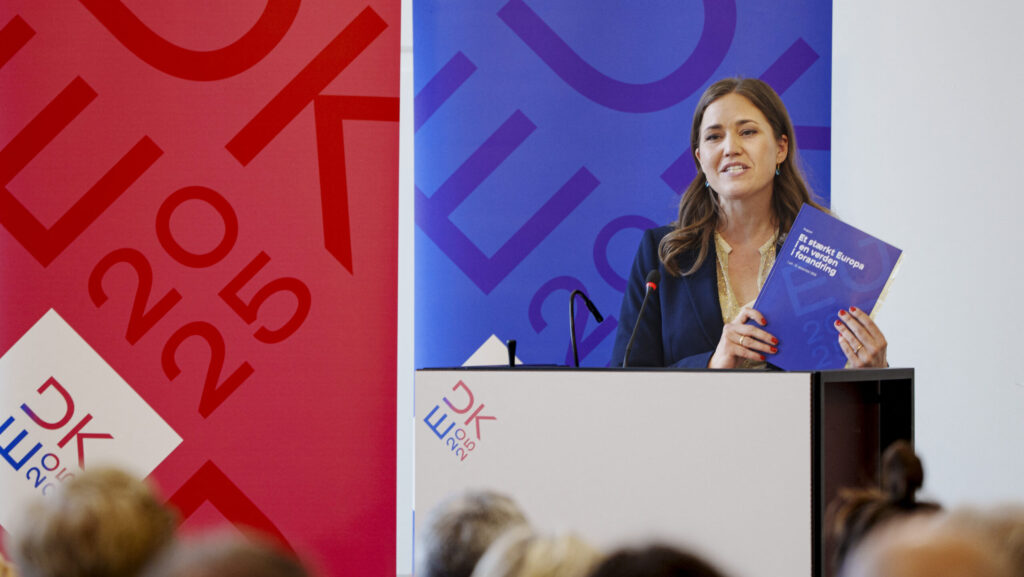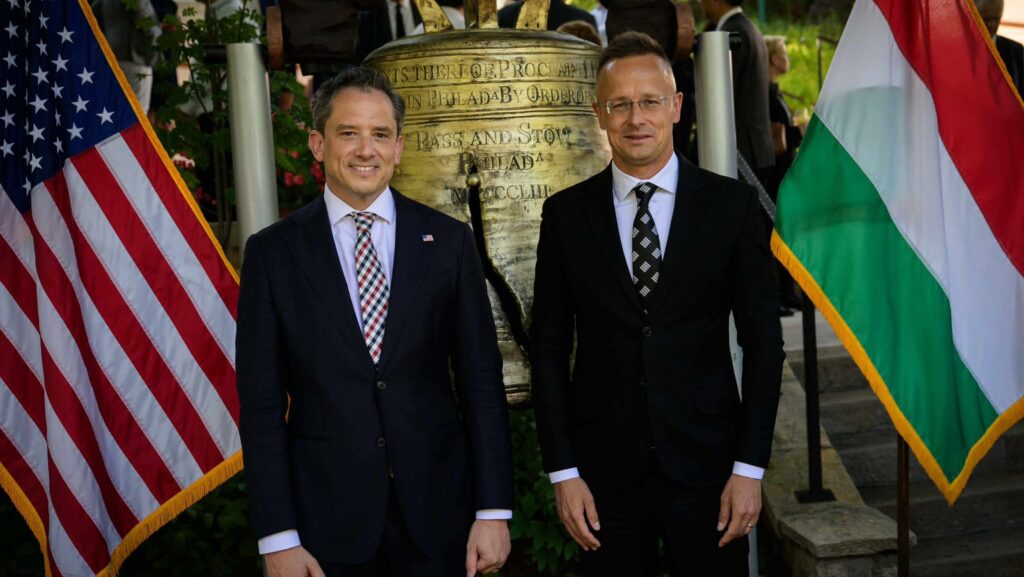11 April marks the birthday of Hungary’s beloved poet, Attila József. Thus, the day is also dedicated to Hungarian poetry and celebrating the genius of Hungarian poets. Since 1964, Hungarians have been celebrating National Poetry Day by sharing their favourite poems with each other and attending cultural events. Marking the cultural significance of today for Hungary, Hungarian Conservative chose five poems to share. All of these works of art are pillars of Hungarian cultural heritage.
- With a Pure Heart by Attila József
The first poem is from Attila József, With a Pure Heart. It speaks about the youth’s state of mind. The poet, who was at university when he wrote the piece, got into serious trouble for it—he was prohibited to teach high school students due to the ´immoral´ and ´nihilist´ views expressed in the poem.
With a Pure Heart
Without father without mother
without God or homeland either
without crib or coffin-cover
without kisses or a lover
for the third day – without fussing
I have eaten next to nothing.
My store of power are my years
I sell all my twenty years.
Perhaps, if no else will
the buyer will be the devil.
With a pure heart – that’s a job:
I may kill and I shall rob.
They’ll catch me, hang me high
in blessed earth I shall lie,
and poisonous grass will start
to grow on my beautiful heart.
- I Know Not What… by Miklós Radnóti
The second poem, I Know Not What… was written in 1944 amidst the troubled days of World War II by the Hungarian Jew Miklós Radnóti just ten months before his tragic death. The poem, that speaks of the love of homeland despite the dire circumstances, inspired one of the works by the renowned contemporary Hungarian composer and pianist Balázs Havasi.
HAVASI – My Homeland (Official Video)
Composed and performed by: HAVASI Featuring: Dohnanyi Symphony Orchestra Budafok Arranger: Peter Pejtsik Vocals: Edina “Mókus” Szirtes Flute: Balazs “Dongó” Szokolay Peter Pejtsik, Violin Poem: “Nem tudhatom” by Miklos Radnoti Recited by: Akos Koszegi Producer and Creative Director: Csaba Marjai Director: Indian Editor: Peter Vigh Sound Engineer: Gabor Juhos Music Production Director: Miklos Lukacs Special thanks to Bence Lang Photos: Adam Jäger (https://termeszetfoto.wordpress.com/), Janos Vajda, Karoly Chochol, Zsolt Szamosvary
I Know Not What…
I know not what to strangers this dear landscape might mean,
to me it is my birhplace, this tiny spot of green;
ringed now with fire, it was, once, my childhood rocking me;
I grew there as a fragile branch from the parent tree;
O may my body sink back to that life-giving soil.
This land is home to me: for if a bush should kneel
before my feet I know its name just as it’s flower,
I know who walks the road, whither and at what hour,
I know what it might mean if reddening pain should fall
dripping some summer dusk down the lintel or the wall.
For him who flies above it, a map is all he sees,
this living scape of being but symbols and degrees;
the reader of the maplines has neither known nor felt
the place where the great Mihály Vörösmarty dwelt;
what’s hidden in the map? yes, barracks, mills and arms,
but for me crickets, oxen, steeples, quiet farms;
with field-glasses he marks the crops and industries,
but I, the trembling labourer, the forest trees,
the twittering orchards, vineprops with their tended grapes,
and the old granny in the graveyard where she weeps;
and what is targeted as rail or factory
is just a lineman by his signal-box to me,
and children watch him wave his red flag for the guard,
and sheepdogs roll and tumble in the foundry yard;
and in the park the trace of loves who once loved me,
the honey taste of kisses sweet as bilberry,
and on the way to school you’d not step on a crack,
let you’d forget your lesson or break your mother’s back;
the pilot cannot see that paving-stone, that grass:
to see all this there is no instrument or glass.
For we are guilty too, as others are,
we know how we have siined, in what, and when and where:
but working people live here, poets in innocence,
breast-feeding infants with their dawned intelligence,
and one day it will brighten, hid now in safety’s bark,
till peace shall write upon our land its shining mark
and answer our choked words in sentences of light.
With great wings cover us, O guardian cloud of night.
Translated by Zsuzsanna Ozsváth and Frederick Turner
- Christ-Cross In the Forest by Endre Ady
The third poem selected by Hungarian Conservative for today was written by Endre Ady, Christ-Cross In the Forest. The poem speaks of the awakening atheism of the early twentieth century, yet remarkably, Ady finishes his work with the realisation and acknowledgement that one’s Creator deserves respect.
Christ-Cross In the Forest
Snow-covered Christ-cross in the forest
On a vasty, moonlit winter’s night:
An ancient memory. Once, sleigh-bell
A-ringing, I chanced to pass that way
On a vasty, moonlit winter’s night.
My father, then still young and carefree,
Sang when he looked on a crucifix.
True scion was I of my father,
Who, sickened by graven images,
Sang when he looked on a crucifix.
Two pig-headed Magyar Calvinists,
Just like Time we paused not as we flew.
Father and son: a Yes and a No,
There we sat together singing and
Just like Time we paused not as we flew.
Twenty years have passed, and in my thoughts
My sledge flies that way now in the night
And – courtesy that then I paid not –
I now uncover and bow my head.
My sledge flies that way now in the night.
- To the Hungarian by Dániel Berzsenyi
Next, the work of Dániel Berzsenyi, To the Hungarian, was written in a Europe torn by the Napoleonic wars. Europe and the Hungarian nation within are depicted in a strong storm, a storm that is capable of tearing down the old world order that was believed to last forever. It is only great nations with true virtue and strict moral rule that can survive the storm, argues Dániel Berzsenyi. The piece, which was one of the favourites of István Széchenyi, who personally produced a German translation of it for his wife, also inspired the Hungarian composer Zoltán Kodály:
No Title
No Description
To the Hungarian (II)
The Seas of Sorrow boil with a rage, Magyar,
the cursed soul of wrathful Erynnis rules,
behold his blood-soaked dagger urging
peoples of Earth into mindless combat!
One day took down the throne of old Prussia, proud;
the Adriatic Coast and the Baltic Sea
are dyed with blood – the Cordilleras
and the Haemi are consumed by tempests.
The lands of Baktra holler and scream of arms,
the Dardanelles give thunder above their banks;
the iron railings of the nations
tumble and fall, ropes and reins a-breaking.
You with your Titus into the castle fort
of your great elders wisely assembly sought –
to guide our boat adrift to safety,
over the breakers, by law and counsel.
Arouse your sleeping national genius!
Should hurricanes howl, dangers galore await:
I shan’t be scared. The screeching trumpets
and the wild leap of the rampant horses
I’ll oversee with courage. Not multitudes,
but souls and people free conjure miracles – –
this is how Rome the whole world conquered,
Buda and Marathon wound up famous!
- Thoughts in the Library by Mihály Vörösmarty
Thoughts in the Library by Mihály Vörösmarty is a meditation on human progress. The human suffering—this is the first Hungarian poem that includes a reference to the tragic fate of black American slaves—that the poet emotionally observes in the world makes Vörösmarty question the worth of knowledge, scientific discovery, and progress. However, by the end of the poem, the writer reaches the conclusion that humans have a mission on this Earth—‘to struggle according to our strength, for noble goals’.
Thoughts in the Library
Consider, scholar, when you enter here,
on cast-off rags, man’s stigma freshly marked,
with words as stark as the dark winter night,
there looms, written blood-black, the awesome lesson:
“while into misery millions are born
a few thousand might find in life salvation
could they but make use of the days of their lives,
had they the mind divine, the Seraph’s temper.”
Why all this rubbish? So, like sheep on grass
we may graze on it? Sated with fodder
and idle hours synthesized by science amoral
to waste God’s day, a nation’s energy?
Why this rubbish? From its stench I recall
all the sins of the animal man – they reek!
Virtue is written on this page, which once
as rag has garbed an outlaw. This other page?
perhaps – oh happy days of innocence –
the frail dress ripped from a ravished virgin,
perhaps a lust-enraged whore’s negligee.
And here on these leaves, the law whitewashed from
remnants of bloody rebels and false judges,
from masks of sanguine tyrants washed white;
the secrets of machines and of numbers laid bare,
but those who tore garments, stripped man naked,
flayed dignity that bindings might be vellum,
these, unaccounted for, must render account –
they spin on Ixion’s tempest-driven wheel
within the vortex, misery without end
and, gnashing their teeth, wail in the dark outside.
On the madman’s sheets ponders a sage’s head;
the astronomer, on eyeless beggar’s rags
measures bursting universes piled on end –
light and blindness, all on a flimsy page!
The coward and the captive, both hapless roles
are bound forever in one book that sings
of freedom and heroes hewing history…
Stainless sheets, pulped from traitor’s rags, now
reward the friend and thus honor the faithful;
yet over all, all-polluting, the Big Lie!
The Word, cursed by the pallid winding sheet
its black image adorns, suffers damnation,
rag-lure of countries, your name is library!
Where, then, is the volume that answers all?
The greater part of Man – where is his joy?
Is the world no better for any book?
Yes! The more gloriously man’s societies arise
the greater the human refuse at the bottom.
The bursting breast of rags stuffed with man
must breathe contagion into the empire’s heart.
Should we, after all, topple what countless brains
have wrought in the linked sunbursts of their minds?
Void the golden knowledge rare brains have
chopped and torn away from the mines of time?
How many bright souls immolated themselves
in vigil at the burning ruins of the heart
to give purpose, strength and comfort
to erring humans humbled by destiny?
Those heroes of unrecognized merit
whom the contemptible public mocked
were praised after death, when praise cost but words:
their thoughts beatified by the martyring mob!
Should the great burn to ashes at the same stake
with rag peddlers, numbskulls, and mildewed hearts?
Glow in embers with dark passion-panders
indiscriminate? Good on account of bad, with them?
Never! That which I said was pain.
The travail of many a bold spirit,
even those luminous minds could not save
the sons of dust from sinking in the mud.
There is barely a corner of the world,
one little oasis on the barren sand
where the most sought-after name is not that of Man,
where the ancient rites of generation
yield as heritage the name of Man!
Except for those who have been born to blackness,
labelled cattle by the glorious elite
who caress the dark image of God with whips.
Despite all, despite all, one must travail –
a new spirit is fighting its way up,
through the soul of man bursts a new approach –
to nurture fruitful ideals in races
primitive, to culture finer sentiments
that they may embrace, at last, each other,
and within their hearts reign love and justice.
So the lowest peasant may, in his hut,
say with assurance “I am not alone,
my brothers and sisters number millions,
I protect them, and me they defend;
fate, I fear thee not, despite thy dread will!”
That is why one must not succumb to despair.
Let us, steadfast as ants, set down that which
our brains, in the rare inspired hours, create,
and when we have assembled every stone,
we’ll erect the Babel of a newer age,
build it until it towers among the stars,
and when we have looked through the gates of Heaven,
having heard from without the Angels’ song,
with every drop of our earthly blood
aglow from elevated flames of delights,
let us then scatter like the ancient peoples
and begin anew, to endure and to learn.
Is this then our fate, and nothing our goal?
It is not – nor will be while the earth yields life,
and its mortal sons are not turned to stone;
what, in this world, is our task? To struggle,
and to nourish the needs of the spirit;
we are Man, son to both the earth and sky,
our soul is the wing beating toward heaven,
but we, instead of striving up to soar,
would rather, dully, like some bird beneath contempt,
eke out existence sucking mud from swamps.
What, in this world, is our task? To struggle,
according to our strength, for noble goals.
Before us stands the fate of a nation –
when we, from the irrevocable fall
have preserved it and restored it to its heights,
fighting under the clear beam of the spirit,
we can say, returning to our ancestors
in the dust: “Thank you, life, for thy blessings –
this has been great joy, yea, the Work of Men!”








